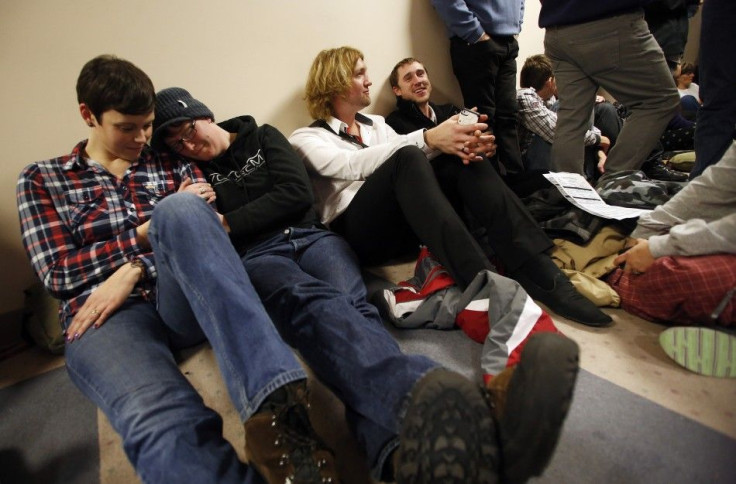Australia’s same-sex marriage vote facing resistance; Opponents cite risk of LGBT youth facing hate speech

The proponents and opponents of same-sex marriage in Australia sought more protection to air their views ahead of a popular vote that seeks to decide whether gay marriage should be made lawful in the country. Overall, there was more resistance to the vote plan with opponents to a public vote highlighting the risk of hate speech that might target young same-sex lovers.
Appearing before a Senate inquiry on Thursday, both sides presented their case on whether the popular vote is really warranted. Prime Minister Tony Abbott is in favour of a plebiscite for taking a final call on the matter.
Damaging discourse
At the Senate enquiry, Associate Professor Paula Gerber argued that a referendum plan was unnecessary and should not be held at all. He argued that this was for the sake of more than 6,000 children who have same-sex parents, as well as to protect youngsters who may be gay, lesbian, trans and intersex, with higher vulnerability to suicides, the Sydney Morning Herald reported.
"To have a publicly funded or sanctioned campaign that allows vitriol against these two groups of children is likely to have significant harm," she said.
The fear of children and youth becoming the objects of hate speech was highlighted by Nationals MP Trevor Khan, who also warned against forcing young gay people into the public debate preceding a plebiscite.
“For teenage LGBTI youth who may be going through the decisions as to whether they are going to come out — to be bombarded over what would be a period of months — is potentially extremely destructive," Khan said.
Khan is a member of the State Parliamentary working group on marriage equality and his demand is that parliament must take a call on that, reports ABC News.
“The constitution gave all of you the authority to make laws with respect to marriage. It didn't give it to you to flick pass to another mechanism," he told the Senate enquiry.
Representatives from the Australian Psychological Society and the Human Rights Law Centre also opposed the plebiscite, saying it would put the health and wellbeing of those most affected at risk.
Rodney Croome, representing Australian Marriage Equality wanted parliament to have a free vote. But he said that looks unlikely and he is ready to give a “conditional backing” to a plebiscite in Australia's next election.
Against change
The dissenting note came from Family Voice Australia director David Phillips, who opposed any change in marriage laws.
“Marriage in our view is not something that is open to being legislated by anybody, whether parliaments or whatever,” he said.
For feedback/comments, contact the writer at feedback@ibtimes.com.au or let us know what you think below.




















